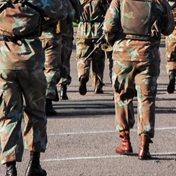
The issue of rising economic inequality in South Africa is spiralling out of control. This is according to Oxfam South Africa’s economic justice head Thembinkosi Dlamini.
Dlamini was speaking at an inequality imbizo in Alexandra on Wednesday, where Oxfam SA and several of its partners, including Amnesty International, gathered to host a series of discussions relating to workers and economic inequality.
“Alexandra is one of the poorest townships, and it is surrounded by affluent suburbs like Sandton, yet the people of Alexandra lack access to basic services such as running water and education. That is why we are here today – to try and highlight the issue and seek to resolve the issue of inequality,” Dlamini said.
The imbizo took place as part of the global Oxfam week of action, following the launch of the inequality report Reward Work Not Wealth, which was released on Monday.
The scope of the talks saw various discussions on issues that workers face, such as wage disputes, pay gaps between men and women and organisational rights.
“For example, we have people here from Shoprite, who were unfairly dismissed after they received tips from customers and were accused of theft by their employer,” Dlamini said.
These workers, known as the “Shoprite 8”, were criminally charged for theft in August last year.
“Workers’ rights continue to be violated with impunity by their employers,” he said.
The report highlighted major pay gaps between corporate heads and ordinary workers, with stats collected by Oxfam showing that the pay ratio of SA chief executives to ordinary workers is currently at 541 to 1.
In other words: the big bosses earn 541 times more money than ordinary workers in South Africa.
“It takes 4.58 days for the best-paid executive in Shoprite to earn what a temporary farmworker at vineyards in South Africa will earn in their lifetime,” Oxfam SA said.
The imbizo took place alongside the World Economic Forum which is currently taking place in Davos, Switzerland, where deputy president Cyril Ramaphosa is currently leading a high-level delegation.
“While the world leaders have gathered in Davos, Switzerland, for the World Economic Forum, we want to work towards finding solutions here as to how we can tackle issues like economic inequality,” Vuyokazi Futshane of Oxfam told City Press.
The goal of the imbizo, Futshane said, was to “find ways in which we can act on the issues and come together for a cause for solidarity”.
“We need to find viable solutions to combat inequality across the scale. From workers’ rights to access to resources in the townships such as Alexandra, we want a solution,” she said.
Isaac Mangena, Oxfam SA’s communication manager, said that the issues being discussed in Davos were irrelevant to the person on the street.
“We are trying to bring Davos directly to the people, in a way. The real issues that people are facing, such as DisChem employees not being allowed organisational rights and thus not being given bonuses in December as they tried to rally support towards being granted these rights.” Mangena said.
Read: ‘It will affect the sick and the frail’ but Dis-Chem employees are set to strike
“We need to call on the government to hold private companies accountable. We also need to rethink the current labour legislation that is in place which threatens workers’ rights to strike or begin a union,” he said.
One of the findings in the report was that women across the globe are underpaid compared with men.
“Globally, women’s participation in the formal labour force is 26% lower than men’s, and the average gender pay gap is 23%. According to the World Economic Forum, at current rates of change, the global economic gender gap at work (considering both disparities in the pay and in employment opportunities) will not be closed for another 217 years.”
Shockingly, the report also refers to South Africa as “one of the most unequal countries in the world”.
“At the global level, income inequality is improving. It remains high, however. If the world were one country, it would have a similar level of inequality to that of South Africa, one of the world’s most unequal countries,” the report said.
| |||||||||||||
| |||||||||||||




 Publications
Publications
 Partners
Partners









